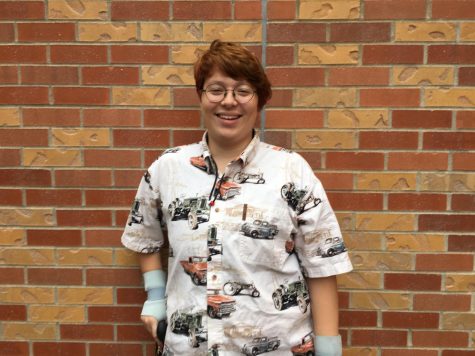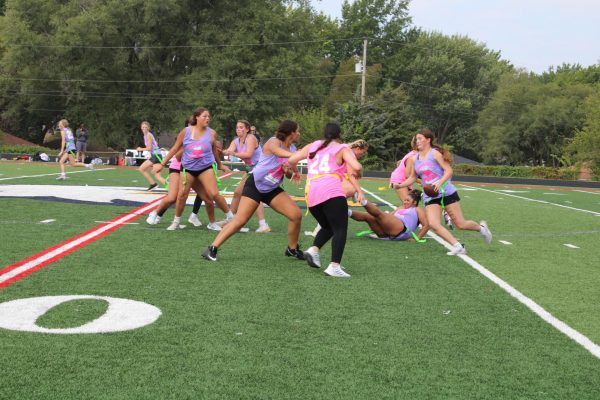Cannot Be Erased
March 8, 2019
Once again, the word “transgender” is in the news and on social media.
On July 26, 2017, President Donald Trump announced to the world on twitter that the United States military would no longer accept transgender individuals to serve due to the medical costs and general “disruption” that transgender service in the military would cause. On Tuesday, January 22nd of this year, the supreme court allowed this ban on transgender troops to go into effect. This means big changes for transgender Americans.
Transgender and gender non-conforming individuals are people whose gender assigned at birth does reflect their gender identity. They often, but not always, alleviate this disconnect with the use of hormone replacement therapy and gender confirming surgery.
Olathe North has made great strides towards the equality and acceptance of LGBT students. The school has a gender and sexuality alliance, or “GSA”, aimed at creating a safe space and bridging the gap between LGBT and non-LGBT students.
So is Olathe North a safe place for transgender and gender non-conforming students? To find out, The Chronicletalked to members of the Trans community at Olathe North.
Audrey Plunkett, a freshman at North, says she feels safe in school.
“It’s just so diverse I feel like even if there was opposition there’d be enough people behind you that it would be squashed immediately.” Plunkett explains.
Senior Aaron Gassen says he would consider North specifically to be a safe place for trans youth.
Of course, there is always more to be done to make school a more welcoming place. Mason Francis, a sophomore, thinks that some of the newer teachers should go through the same inclusivity training the old teachers took, due to lacking that training currently.
Plunkett’s vision of inclusivity at school includes “just a mention here and there”, and not “an awareness day” or “big, flashy mentions”. Her idea of inclusiveness is simply to be acknowledged in class when it applies.
Being a transgender teenager in Kansas also means tricky laws regarding the right to use the bathroom and change your name.
Senate bill 206 was introduced in February of last year, demanding that bathrooms be separated strictly by sex, defining sex as “being determined by anatomy and genetics existing at the time of birth”. This bill died in May, but similar bills continue to be introduced in the senate.
Kansas law also requires proof of medical intervention before allowing the gender marker on one’s state ID to be changed. This requirement creates a barrier for many transgender Kansans as not all are able to do this, and some simply don’t want to have medical procedures done.
Gassen feels that Kansas’s laws are “more conservative than a lot of the neighboring states. “I hate the fact that you have to go through SRS to get your license changed”, says Gassen.
The restriction to transgender rights in Kansas and in the United States have existed for years. Mason Francis thinks it’s “dumb”, but Audrey Plunkett holds out hope.
“Our laws are stupid but I hold up hope because of the recent election” says Plunkett, because of who was elected in the recent democratic majority in the Senate and House of Representatives.
Even though the politics surrounding transgender youth may seem bleak and even discouraging to some, it’s still possible for hope to survive. And as Gassen said “Let people live their lives.”
How to be an ally:
1. If you aren’t sure what someone identifies as, ask for their preferred name and pronouns.
If you meet someone and don’t know what to address them by, don’t be afraid to ask! They will appreciate your thought-ful gesture.
2. If you make a mistake, apologize and don’t make it a big deal.
Especially when you’ve known someone for years, it can be hard to get used to calling them by a new name. If you slip up in a conversation, apologize and make the correction.
3. Don’t “out” them.
Coming out as trans is a deeply personal choice. Outing someone as trans before they are ready is a violation of their privacy and could put them in danger.



